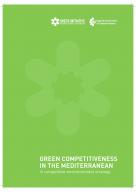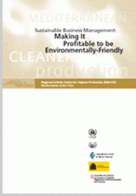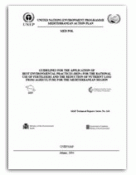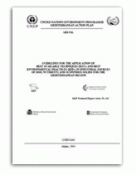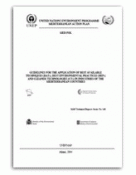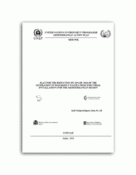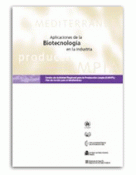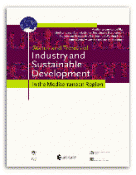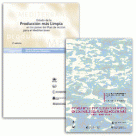

Subscribe to SCP News
General Studies
Studies that present and analyze various aspects of sustainable consumption and production and sound chemicals management within a global and regional perspective.
 Guidelines for the application of best available techniques (BATs) and best environmental practices (BEPs) in industrial sources of BOD, nutrients and suspended solids for the Mediterranean region
Guidelines for the application of best available techniques (BATs) and best environmental practices (BEPs) in industrial sources of BOD, nutrients and suspended solids for the Mediterranean region
(PDF)
 State of Cleaner Production in the Countries of The Mediterranean Action Plan
State of Cleaner Production in the Countries of The Mediterranean Action Plan
(PDF)
Sant Pau Recinte Modernista. Pavelló de Nostra Senyora de la Mercè
Carrer de Sant Antoni Maria Claret, 167.
08025 Barcelona, Catalunya (Spain)
Legal notice © All rights reserved | Privacy | Accessibility






 Green Competitiveness in the Mediterranean Region
Green Competitiveness in the Mediterranean Region 


